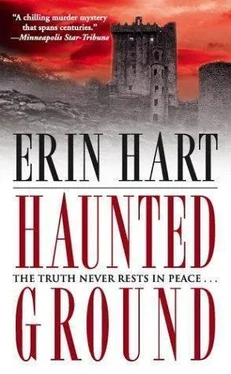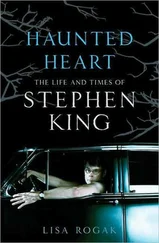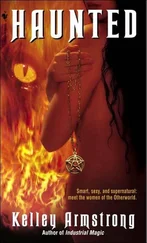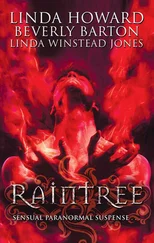She was growing steadily weaker, according to the nurse who looked after her while he was away at college. He had just started his second year at university, as she’d insisted, but on weekends he’d take the train from Dublin or get a lift down to be with her. One Friday in October, he’d caught an earlier train than usual—he was coming down to tell her he wasn’t going back to Dublin anymore. He was just thanking the salesman who’d given him a lift from Ennis when he saw his mother at the churchyard gate. She was in a wheelchair, and though he was more than a hundred yards away, he knew that the white-haired man pushing the chair was Joseph Maguire. His father. He hung back to observe them; he could see his mother’s head tilt, the better to hear the voice that spoke at her ear, and he felt somehow betrayed by the way she looked up at her husband. He was still her husband. They had never gone through the formality of a legal separation. He watched his mother’s frail body in the chair, her thin shoulders covered by a sweater and a Spanish shawl. When his parents entered the churchyard, Cormac crossed the street and moved closer to the gate. He watched as they moved slowly up the path. He’d taken the same walk with her only a few weeks ago, when test results had shown that further treatment was useless against the rampant cancer cells, and she had wanted to show him the place she would be buried.
He turned away and pressed his back against the gatepost, trying to work out what to do. He felt a fury of hurt and anger and jealousy. He stepped away from the curb and began walking blindly until he reached the coast road, where he turned northward, climbed down the rocks, and began trudging along in the sand. He felt ridiculous—he was nearly a grown man, and yet he felt like that confused and abandoned child of all those years ago. He understood when he saw them together that his mother still loved Joseph Maguire, a man who didn’t deserve to be so loved. Why couldn’t his father be the one who was dying? He dropped his pack on the sand, fell to his knees, and pitched forward, the pain in his chest feeling as if it would tear his rib cage apart. Hot tears seeped under his eyelids; he tried to breathe, inhaling in the salty, seaweed-smelling air of the beach. How long he lay there, he did not know. She was obviously happy to see him. What could he do now but feign gratitude at the old man’s return? It soothed him to think of the way things had to be. The wet sand was cool against his face, and eventually he felt a sense of calm returning. He pushed himself to his feet, brushed as much of the sand off his clothes as he could, and slung his rucksack over one shoulder for the walk back to the town….
The memory slowly faded. Cormac reached out one hand to touch the letters of his mother’s name, then rose from his knees at the graveside, quickly retracing his route back down the gravel path and out the cemetery gate. When he was growing up, Kilgarvan had been just a single, narrow row of houses and a few shops with their backs to the sea. Now holiday homes had succeeded fishing as the main economic force, and modern, sterile-looking developments had sprung up on concrete slabs in hay fields surrounding the town. Tiny flags signified that the natural dunes above the strand had become sand traps in a golf course. He turned onto the coast road, and walked the quarter mile that used to seem endless when he was a boy. When he stopped in front of a two-story house, now painted yellow with green trim, he was pleased to notice that the rosebushes his mother had tended so lovingly still flourished all around the edge of the front garden.
No one seemed to be about when he arrived home, but a small gray Ford with a car-hire sticker was parked in the drive. He pushed open the front door and found his mother tucked up on her favorite antique chaise, her face bright with anticipation, as he had known it would be.
“Cormac,” she said, and in that instant, she saw that he already knew what she was about to tell him. She looked at him with a mixture of hope and pleading. He stood and returned her gaze, hoping that his look communicated understanding, or at least forbearance. The door from the kitchen swung open, and in backed Joseph Maguire, bearing a tea tray. “I’ve set three cups,” he was saying. “I think he’s bound to turn up soon—”
He watched his father straighten out of a slightly solicitous crouch. This man was white-haired and rumpled in a professorial way, not at all the image of the dashing, dark-haired warrior he had kept in his head all these years. The two of them looked in unison toward Eilis. Her eyes shone. Speak to each other, they urged silently. Say something.
“Hello, Cormac,” said his father, still holding the tea tray and looking slightly ridiculous.
“Hello,” he replied. How many times had he rehearsed this scene, trying to work out what their first words might be, what great deed he might have accomplished to bring his father all the way back across the ocean? Now the moment was here, and he was surprised how little he actually felt. Perhaps he’d spent all the feeling he had out on the strand.
“I was going to tell you, Cormac,” his mother said. “But somehow we got the dates mixed up, and your father arrived a day earlier than I anticipated.”
“Your mother wrote me,” Joseph said, still gripping the handles of the tray. Only then did it occur to Cormac that this might be awkward for his father as well. “And we thought it would be best for me to come, to take some of the pressure off you while you’re at your studies. It can’t be easy traveling such a distance every weekend.”
It isn’t, he wanted to say, but the real hardship was going back to Dublin at the end of each visit, knowing that she might not be here when he returned. “I don’t mind,” he said.
Cormac’s thoughts were still in the past when the front door of the house opened, and out stepped a girl with pink-streaked hair, dressed in the current fashion, and tottering slightly on platform shoes. As she approached down the footpath, he decided she couldn’t be more than about fifteen; her lips were painted a deep shade of blue, and three tiny gold rings pierced her left eyebrow. “Are ye all right?” she asked. “Are ye looking for someone?”
“No, I used to live in this house. My mother planted all these roses, and the apple tree in the back garden, if it’s still there.”
“Yeah, it’s there.” He could sense annoyance as the girl studied him, worried that he’d want to have a look at that, too. She was late for something, he guessed, but didn’t like leaving the house with this lunatic hanging about the front gate.
“I don’t mean to hold you up,” he said. “Just wanted to see what the old place looked like.” He wondered as he walked slowly back to the church whether there was an actual physical threshold in the mind, a point at which the past filled up more of one’s thoughts than the future.
On Sunday evening, Garrett Devaney sat in a straight-backed kitchen chair opposite his daughter Roisin. Her head tipped toward her left shoulder, where the body of his fiddle rested, its slender neck cradled in the curve of her hand.
“There,” said Devaney, sitting back. “How does that feel?”
“A bit strange.”
“It might feel that way at first, but you’ll get used to it. It might even feel comfortable after a while. The main thing is to stay relaxed, especially here—” He reached out and pressed gently on his daughter’s shoulders, observing how small and thin she felt beneath the weight of his hands. It had been a long time since he’d actually made any sort of physical contact with one of his children. “Ready for the bow?”
“Yes,” she said firmly.
Читать дальше











